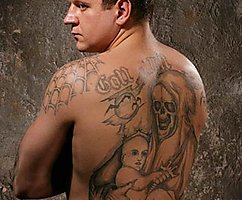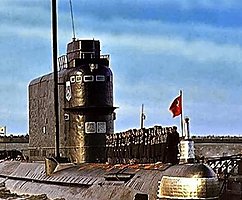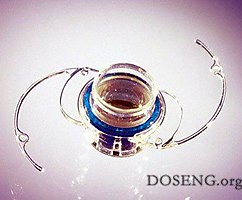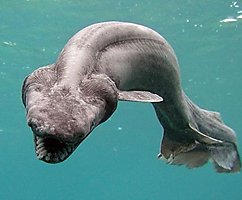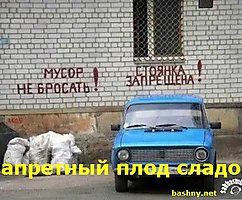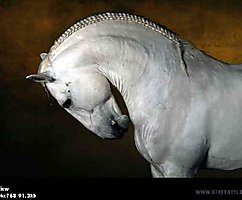Who's your daddy, and what does he do?
 Bashny.Net
Bashny.Net
"But now we really have fun. We play a wicked game of "Who's my dad, and what he does". Let's start with you:
My father is repairing machines that broke brainless women.
— My dad after the accident, does nothing.
— My dad gives money to people who have no money, then they use them, and then give him the other money back, and dad give exactly the same money.
— My dad all day watching TV.
— My dad divorced and my mother divorced.
— My dad is a psychologist. He helps people who have offended, or who don't feel anything. That's all.
— My dad works in the house and lot playing with me."
From the movie "Kindergarten COP".

Recently, as in some of their daily activities, from a background working TV consciousness fished this moment from the film when the main character, an undercover COP, interviewing a group of kindergarten on the subject of the occupations of their fathers. The goal is quite specific, the plot of someone from fathers of children from this group, the offender, and the hero needs to track him down. Already quite an old movie, he has more than twenty years, but children's responses, in essence, absolutely amazing and relevant for any time. And that's what it is.
There is a popular view that scientific theory is true if it is possible in accessible language to explain to a seven year old child. In the example from the movie the kids are younger, but the underlying fact does not change. Even children at preschool age have limited vocabulary and do not understand many complex cause-and-effect relationships, but they often possess unique ability to grasp the essence of phenomena. Under the astonished exclamations of the adults they speak. Let the logic of these statements and suffering, but each of them definitely has something deep and compelling to ponder. Aphoristic age, his name is even named the book — "three to five".
And, reflecting on all this, I remembered how a friend of mine shared with me the discovery that he accidentally helped to make his young son. He was asleep, and the son, trying to grab more impressions of the passing day, everyone was asking and asked him questions. "Daddy, why is that? Dad, why is that?". So typical for the child's mind. And he just met the baby the first right that came to mind. But one question suddenly made him stop and think: "Dad, what are you doing in life? Who do you work for?". And he remembered how painful it is to formulate simple and clear for the child answer: "you Know, I am a key account presentations... Well, the key is the most important, it's people like... Well, presentation, it's when people are going to be sure you convey... Well, I bring knowledge of what we produce to people in need... I help them... Yes, they help people..". — I say all this to his son, and he looks at me with interest and said, "Daddy, who are you, anyway? What do you do?".
The question that may serves as a leitmotif of the so-called mid-life crisis. When, like, and goals, some achieved and peaks conquered. But somehow, suddenly, it all becomes irrelevant, but it is something else, something else, barely perceptible, is always slipping away, a feeling of completeness and meaning live life. Happiness, in the end. And what about these categories is quite difficult to build a coherent plan to achieve. Because there are no attributes, having won which you can afford to guarantee it.
In transactional psychoanalysis, there is conventionally a schematic division of the spheres of the psyche, which has become part of popular culture and, to some extent, familiar to all: the Inner Parent, Inner Adult and Inner Child. And if a Parent often involves all sorts of dogma and attitudes, which man carries within himself, the Adult - rational perception of life, Inner Child — this is, again, someone who can ask such a serious and sometimes tricky questions. And if your real child, you can always shrug — well, something he talked too much in the answer to lie in the end. How wriggle from the child that you are deep down? From their spontaneous desires, impulses, dreams, and the dreams of what once was your life? Their place in it. That case, which would Express you, your whole being. So all these regular weekly jokes about Friday and Monday it would seem to you something that is definitely fun, but completely alien and unfamiliar.
One of the classics of existential psychotherapy, Rollo may in the book "Discovery of Genesis" is a very interesting and accurate observation concerning the symptoms that people often come into psychotherapy. He writes that anxiety, guilt, depression and many other mental suffering in modern humans are associated not only with suppression and repression, as it was in the days of Freud, and with the internal conflict that arises from man's awareness of who he is now and who he could become. It is no coincidence, perhaps, a different kind of anxiety disorders often accompany periods of his life, a situation in which a person has a serious choice.
Which way to go, where to go in life?
To drift or to finally start something of their own?
Choose comfort and are insured now or risk many, and to hope for new opportunities?
To pick up difficult once more words to explain what we do, who we are, in plain language or do something to the essence itself, and the case was clear, first of all, yourself?
These are all topics that contain a lot of fears. And the older I get the more fears. Because the experience, because a lot of knowledge, because the responsibility. But freedom always entails responsibility. And somewhere in this region, in the region accept responsibility for your choices, in terms of freedom, in the sense that I am becoming what felt someone wanted what was drawn, and is the direction of meaning, of meaningfulness of life, to its fullness. Fortunately. Let and such that really sometimes, not often. But happiness.
The word anxiety comes etymologically from the concept of a "pain in fights", "strangulation". All this applies to the States through which the newborn during childbirth. In fact, it may mean that one of the main tasks that life poses for a person is to give birth to himself. Implement yourself the way you feel inside. Allow yourself to come true and find his incarnation.
And then we always simply and clearly to meet the child outside, and, more importantly, the fact that inside: "Who's your daddy, and what does he do?" published
Author: Paul Eremeev
P. S. And remember, just changing your mind — together we change the world! ©
Source: psy-practice.com/publications/rabota-obshchestvo/kto_tvoy_papa_i_chem_on_zanimaetsya/
My father is repairing machines that broke brainless women.
— My dad after the accident, does nothing.
— My dad gives money to people who have no money, then they use them, and then give him the other money back, and dad give exactly the same money.
— My dad all day watching TV.
— My dad divorced and my mother divorced.
— My dad is a psychologist. He helps people who have offended, or who don't feel anything. That's all.
— My dad works in the house and lot playing with me."
From the movie "Kindergarten COP".

Recently, as in some of their daily activities, from a background working TV consciousness fished this moment from the film when the main character, an undercover COP, interviewing a group of kindergarten on the subject of the occupations of their fathers. The goal is quite specific, the plot of someone from fathers of children from this group, the offender, and the hero needs to track him down. Already quite an old movie, he has more than twenty years, but children's responses, in essence, absolutely amazing and relevant for any time. And that's what it is.
There is a popular view that scientific theory is true if it is possible in accessible language to explain to a seven year old child. In the example from the movie the kids are younger, but the underlying fact does not change. Even children at preschool age have limited vocabulary and do not understand many complex cause-and-effect relationships, but they often possess unique ability to grasp the essence of phenomena. Under the astonished exclamations of the adults they speak. Let the logic of these statements and suffering, but each of them definitely has something deep and compelling to ponder. Aphoristic age, his name is even named the book — "three to five".
And, reflecting on all this, I remembered how a friend of mine shared with me the discovery that he accidentally helped to make his young son. He was asleep, and the son, trying to grab more impressions of the passing day, everyone was asking and asked him questions. "Daddy, why is that? Dad, why is that?". So typical for the child's mind. And he just met the baby the first right that came to mind. But one question suddenly made him stop and think: "Dad, what are you doing in life? Who do you work for?". And he remembered how painful it is to formulate simple and clear for the child answer: "you Know, I am a key account presentations... Well, the key is the most important, it's people like... Well, presentation, it's when people are going to be sure you convey... Well, I bring knowledge of what we produce to people in need... I help them... Yes, they help people..". — I say all this to his son, and he looks at me with interest and said, "Daddy, who are you, anyway? What do you do?".
The question that may serves as a leitmotif of the so-called mid-life crisis. When, like, and goals, some achieved and peaks conquered. But somehow, suddenly, it all becomes irrelevant, but it is something else, something else, barely perceptible, is always slipping away, a feeling of completeness and meaning live life. Happiness, in the end. And what about these categories is quite difficult to build a coherent plan to achieve. Because there are no attributes, having won which you can afford to guarantee it.
In transactional psychoanalysis, there is conventionally a schematic division of the spheres of the psyche, which has become part of popular culture and, to some extent, familiar to all: the Inner Parent, Inner Adult and Inner Child. And if a Parent often involves all sorts of dogma and attitudes, which man carries within himself, the Adult - rational perception of life, Inner Child — this is, again, someone who can ask such a serious and sometimes tricky questions. And if your real child, you can always shrug — well, something he talked too much in the answer to lie in the end. How wriggle from the child that you are deep down? From their spontaneous desires, impulses, dreams, and the dreams of what once was your life? Their place in it. That case, which would Express you, your whole being. So all these regular weekly jokes about Friday and Monday it would seem to you something that is definitely fun, but completely alien and unfamiliar.
One of the classics of existential psychotherapy, Rollo may in the book "Discovery of Genesis" is a very interesting and accurate observation concerning the symptoms that people often come into psychotherapy. He writes that anxiety, guilt, depression and many other mental suffering in modern humans are associated not only with suppression and repression, as it was in the days of Freud, and with the internal conflict that arises from man's awareness of who he is now and who he could become. It is no coincidence, perhaps, a different kind of anxiety disorders often accompany periods of his life, a situation in which a person has a serious choice.
Which way to go, where to go in life?
To drift or to finally start something of their own?
Choose comfort and are insured now or risk many, and to hope for new opportunities?
To pick up difficult once more words to explain what we do, who we are, in plain language or do something to the essence itself, and the case was clear, first of all, yourself?
These are all topics that contain a lot of fears. And the older I get the more fears. Because the experience, because a lot of knowledge, because the responsibility. But freedom always entails responsibility. And somewhere in this region, in the region accept responsibility for your choices, in terms of freedom, in the sense that I am becoming what felt someone wanted what was drawn, and is the direction of meaning, of meaningfulness of life, to its fullness. Fortunately. Let and such that really sometimes, not often. But happiness.
The word anxiety comes etymologically from the concept of a "pain in fights", "strangulation". All this applies to the States through which the newborn during childbirth. In fact, it may mean that one of the main tasks that life poses for a person is to give birth to himself. Implement yourself the way you feel inside. Allow yourself to come true and find his incarnation.
And then we always simply and clearly to meet the child outside, and, more importantly, the fact that inside: "Who's your daddy, and what does he do?" published
Author: Paul Eremeev
P. S. And remember, just changing your mind — together we change the world! ©
Source: psy-practice.com/publications/rabota-obshchestvo/kto_tvoy_papa_i_chem_on_zanimaetsya/
Tags
See also
Oecumene or "It is necessary to live somewhere!"
Who will be the Pope: a survey on the streets of Moscow.
Andrew Lorgus: Whenever people start to blame each other - it is not love
How to learn to manage any employee
Mogolia? or I can't
So what do the celebrities in the Easter weekend?
"The need to engage in self-defense?".






